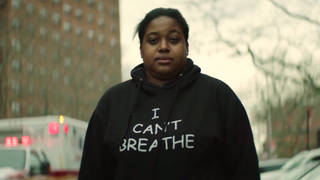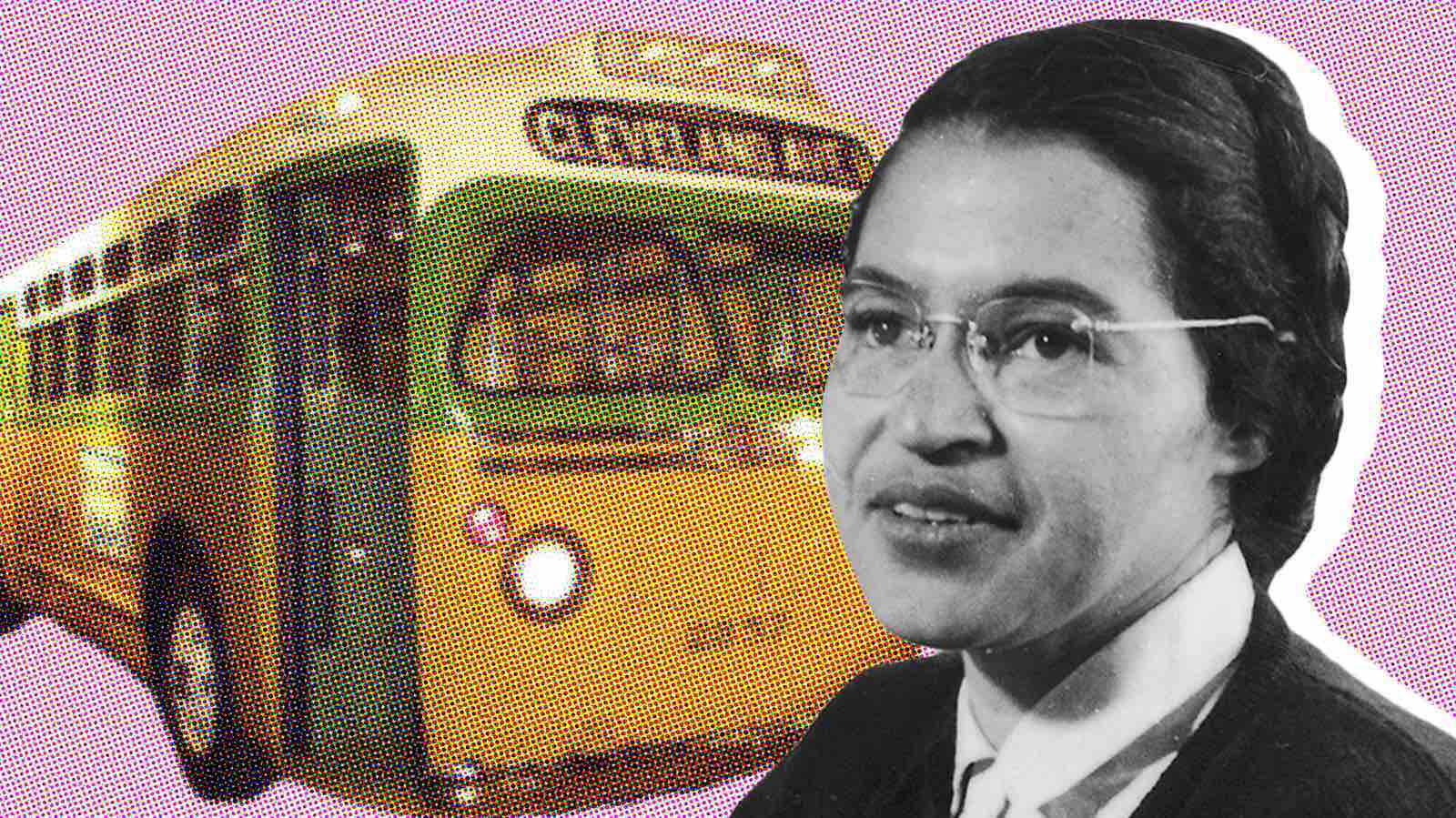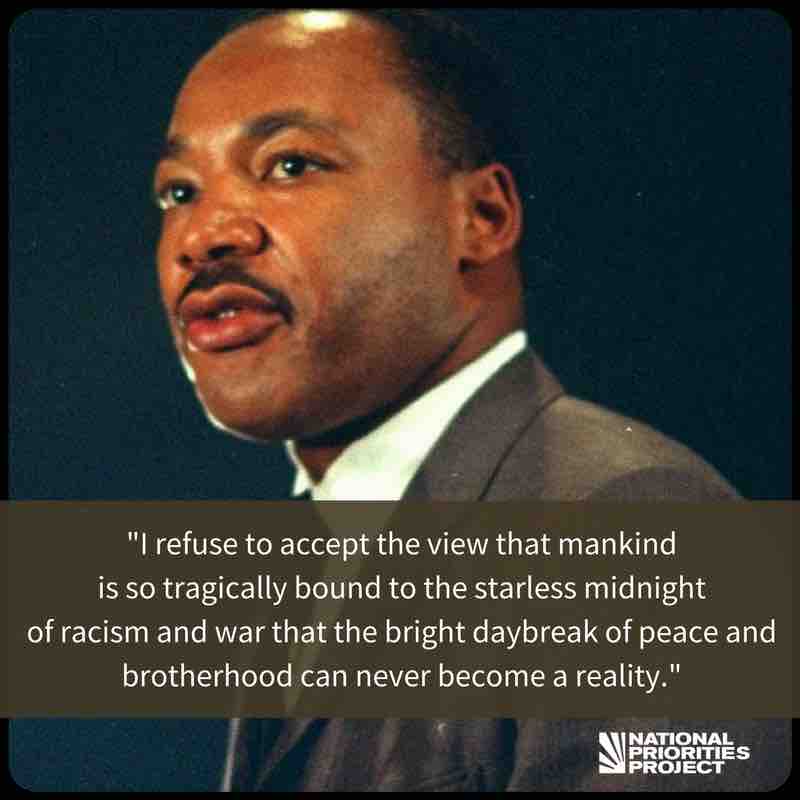Menu

ŌĆ£A nation that continues year after year to spend more money on military defense than on programs of social uplift is approaching spiritual death.ŌĆØ
From Beyond Vietnam: A Time to Break Silence
By Rev. Martin Luther King 4 April 1967
The historic speech delivered at a meeting of Clergy and Laity Concerned at Riverside Church, New York City, in which Dr. King called for an end to war in Vietnam, with a fundamental critique of US foreign policy.
1968 plus 50: History and Action in 2018
Rosa Parks Was My Aunt. HereŌĆÖs What You DonŌĆÖt Know About Her
By Urana McCauley as told to Liz Dwyer, Shondaland.
Published on February 2, 2018. Posted Feb. 4 on popularresistance.org
http://www.shondaland.com/inspire/a16022001/rosa-parks-was-my-aunt/
"This is how you know her: She was the tired seamstress who refused to give up her seat, sparking the Montgomery Bus Boycott of 1955. Maybe you remember Rosa Parks as that quiet, older woman being honored at an awards show. Or maybe you remember seeing pictures of her shaking a PresidentŌĆÖs hand. But at this yearŌĆÖs Golden Globes, when Oprah Winfrey talked about Recy Taylor, a woman from Alabama who was kidnapped and raped by six white men, Oprah also did some myth-busting about my aunt with these words: ŌĆ£Her story was reported to the NAACP where a young worker by the name of Rosa Parks became the lead investigator on her case and together they sought justice." ...
..."Today, IŌĆÖll be visiting Rosa Parks Elementary School in Toledo, Ohio to talk about my aunt with the kids. WeŌĆÖll have some cake, weŌĆÖll celebrate. And IŌĆÖm going to tell them to remember that Rosa Parks was a regular citizen that, in her heart, felt like she should be doing something for change. Instead of waiting for others, she took that leap."
Read article here
We honor Erica Garner

..."Erica Garner died at the age of 27 on December 30 after an asthma-induced heart attack, four months after giving birth to her second child. EricaŌĆÖs father, Eric Garner, was killed when police officers in Staten Island wrestled him to the ground, pinned him down and applied a fatal chokehold in 2014." Democracy Now!
Christen Smith: The Fallout of Police Violence Is Killing Black Women Like Erica Garner
"Too many black women like Erica Garner are dying in AmericaŌĆÖs maternal mortality crisis." more
On Martin Luther King Jr's 89th birth anniversary
ŌĆ£My husband often told the children that if a man had nothing that was worth dying for, then he was not fit to live. He said also that itŌĆÖs not how long you live, but how well you live.... He gave his life for the poor of the worldŌĆöthe garbage workers of Memphis and the peasants of Vietnam. Nothing hurt him more than that man could attempt no way to solve problems except through violence. He gave his life in search of a more excellent way, a more effective way, a creative rather than a destructive way.ŌĆØ
ŌĆöCoretta Scott King, speaking of her husband on Saturday, April 6, 1968
(Thanks to David Ratcliffe for sending this, on January 15, 2018. See his contact information at end)
Dear All,
The following is an excerpt from ŌĆ£The Truth of The Children of Vietnam: A Way of LiberationŌĆØ published at the end of November. After Dr. King gave his address ŌĆ£Beyond Vietnam: A Time to Break SilenceŌĆØ at Riverside Church on April 4, 1967, barrister and author William Pepper wrote of Martin King's determination and commitment to bring 500,000 people to Washington in the Spring of 1968 culminating in an encampment in the shadow of the Washington Memorial, to stop the functioning of the United States government until the government agreed to abolish poverty. Two prominent faith leaders ŌĆö the Rev. Liz Theoharis and the Rev. Dr. William J. Barber II ŌĆö are launching a new multi-issue, multi-racial Poor PeopleŌĆÖs Campaign to recapture the spirit of that 1968 campaign. More about this campaign follows the excerpt.
ŌĆ£The Children of VietnamŌĆØ provides an instance of truth force that is needed now more than ever to counter the fragmentation and doublethink being amplified by the demands of capital and its accumulation. Because, tragically and horrifically, what the United States caused to happen in Vietnam has not stopped. It continues to this day, magnified on a global scale within numerous theatres of U.S. military and covert operations including in Iraq, in Afghanistan, and Yemen.[19]
Earlier this month a report from the Costs Of War project at Brown University details U.S. spending on post-9/11 wars to reach $5.6 trillion by 2018.[20] Among other data, this series finds that the average U.S. taxpayer has spent $23,386 on these wars since 2001. Apprehended in this way, it is clear how each of us who pays taxes in the U.S. is collaborating in, and contributing to, the militarism that is devastating the globe and devouring our collective future.
In denouncing the U.S. war in Vietnam at Riverside Church in 1967 Martin King posed the question on behalf of Vietnamese peasants: ŌĆ£What do they think as we test out our latest weapons on them, just as the Germans tested out new medicine and new tortures in the concentration camps of Europe?ŌĆØ And this was a war that ended up being broadcast on nightly news television in the United States as it became evermore hellish in its results. Said King at Riverside, ŌĆ£When machines and computers, profit motives and property rights, are considered more important than people, the giant triplets of racism, extreme materialism, and militarism are incapable of being conquered.ŌĆØ His voice, love, compassion, and intelligence are as searingly relevant right now, half a century later, as in 1967.
Historian Vincent Harding was a close friend of Martin King and the author of KingŌĆÖs ŌĆ£Beyond Vietnam: A Time to Break Silence,ŌĆØ speech at Riverside Church. In his uncompromising book, Martin Luther King: The Inconvenient Hero,[21] Harding offers a series of meditations on the final years of KingŌĆÖs life after his August 1963 I Have A Dream speech. In a 2010 conversation, the historian described how, for the U.S. to establish a national MLK holiday,
Martin would have to be somewhat domesticated in order for the country to deal with him because he was...calling us to give up for instance on the whole experience and teaching and living of white supremacy, calling us to move away from the great levels of materialism that have always been so much a threat to our humanity and the humanity of others.... Almost never in most of the [national holiday] celebrations is there any lifting up of his powerful statement against the war and against the machinery of war and against militarism and against our temptation to live as a new kind of imperial power in the world.[22]
HardingŌĆÖs book evokes and reignites the increasingly radical King, largely forgotten, rejected, and ignored by the status quo at every level. Writing of the national holiday, he asks the question,
When will he be safely dead? Listen for him in January.... Hear the voices from the black past (and future) singing, beyond the ŌĆ£Hosannas,ŌĆØ singing with Martin, for Martin, ŌĆ£AinŌĆÖt no grave can hold my body down.ŌĆØ
Perhaps the youngest children will hear best, will receive the voices and the songs through ears and hearts not yet filled with the ŌĆ£Top Forty,ŌĆØ through eyes that see beyond MTV and other diversions from getting ready. Perhaps they will sense that great men and women do not really die. Perhaps they will ask about his dream, his cause, suspecting that he lives, somewhere, nearby. Perhaps we will have the wisdom, the knowledge, and the courage to introduce them to the hero who, by the end of his life, was totally committed to the cause of the poorŌĆöin Mississippi, in Chicago, in Appalachia, in Vietnam, in Central America, in South America, in Memphis.
Perhaps we will tell them that the older dream, the famous, easier-to-handle dream, the forever-quoted dream of 1963 was no longer sufficient for him. Let them know that at the end, when the bullet finally came, he was dreaming of marching on Washington again, but this time to stay there, not just for speeches and for singing, but for audacious, challenging, divinely obedient actionŌĆöto engage in a campaign of massive civil disobedience to try to stop the functioning of the national government. Tell them he planned to do this, calling on thousands and hundreds of thousands of lovers of justice until the cause of the poor became the nationŌĆÖs first priority, until all people were guaranteed jobs or honest income, until our nation stopped killing Asians abroad and turned to tend to the desperate needs of its people at home.[23]
Published in 1996, Harding reminds us of the bristling vector Dr. Martin Luther King Jr. was accelerating towards, unceasing in his invitation for all to likewise walk through the self-imposed walls of our own limitations and to create and establish ŌĆ£another way, a better way than the way of weapons and war, to be all [we] can be.ŌĆØ[24]....
Coretta Scott King recounts how, on Saturday, April 6, 1968ŌĆöas Vincent Harding writes, ŌĆ£two days after the bullet of fear and greed, of racism and militarism, and of ignorance and blindness had finally caught up with her husbandŌĆØŌĆöshe spoke at Ebenezer Baptist Church in Atlanta about her spouse.
My husband often told the children that if a man had nothing that was worth dying for, then he was not fit to live. He said also that itŌĆÖs not how long you live, but how well you live. He knew that at any moment his physical life could be cut short, and we faced this possibility squarely and honestly. My husband faced the possibility of death without bitterness or hatred. He knew that this was a sick society, totally infested with racism and violence that questioned his integrity, maligned his motives, and distorted his views, which would ultimately lead to his death. And he struggled with every ounce of his energy to save that society from itself. He never hated. He never despaired of well doing. And he encouraged us to do likewise, and so he prepared us constantly for the tragedy. I am surprised and pleased at the success of his teaching, for our children say calmly, ŌĆśDaddy is not dead; he may be physically dead, but his spirit will never die.ŌĆÖ Ours has been a religious home, and this too has made this burden easier to bear. Our concern now is that his work does not die. He gave his life for the poor of the worldŌĆöthe garbage workers of Memphis and the peasants of Vietnam. Nothing hurt him more than that man could attempt no way to solve problems except through violence. He gave his life in search of a more excellent way, a more effective way, a creative rather than a destructive way. We intend to go on in search of that way, and I hope that you who loved and admired him would join us in fulfilling his dream. The day that Negro people and others in bondage are truly free, on the day want is abolished, on the day wars are no more, on that day I know my husband will rest in a long-deserved peace.[27]
Trappist Monk Thomas Merton had a gift for seeing the truth of our world with intelligence and coherence. In a letter to a correspondent on New YearŌĆÖs Eve 1961, Merton wrote about how we had become servants of our own weapons of war:
Our weapons dictate what we are to do. They force us into awful corners. They give us our living, they sustain our economy, they bolster up our politicians, they sell our mass media, in short we live by them. But if they continue to rule us we will also most surely die by them.[28]
The scourge of war that forever changed the world of the children of Vietnam, who physically survived our war in their land, casts an ever-lengthening shadow that haunts us to the present day with ever more effective killing machines including drones and remote-control-engendering-death technologies. The questions before us have not changed since 1967. How have we and how will we respond to the world of hellish death and suffering we fund throughout every year, including on blood money tax day? What are we to do with these lives we have been given to move away from the great levels of materialism that have always been so much a threat to our humanity and the humanity of others? To oppose all war and the machinery of war and come out every day against militarism and against our temptation to live as a new kind of imperial power in the world? To be totally committed to the cause of the poorŌĆöin Mississippi, in Chicago, in Appalachia, in Vietnam, in Central America, in South America, in Memphis? To work tirelessly so the cause of the poor becomes the nationŌĆÖs first priority, until all people are guaranteed jobs or honest income, until our nation stops killing humanity abroad and despoiling the Earth and turns to tend to the desperate needs of its people at home? To dissolve our psychological numbing walls and allow the light of courage, faith, fellowship, love and peace to come into our hearts and thus be reminded that intelligence is not meant to be another word for espionage, spying, and dirty tricks? What truth of God could be greater than the truth of our rich, unexplored human possibilities, our fundamental oneness, our essential union with all life, and our responsibility to live out that truth, politically, economically, socially, spiritually, ecologically, culturallyŌĆöcome what mayŌĆöagainst all the systems of separation, dehumanization, and exploitation which deny ŌĆ£what the living may becomeŌĆØ?
The questions demanding our response abilities remain. They will not go away. To respond to them may appear to run the gamut from seemingly difficult to impossible. And yet, for our fellow human beings we share this earth with, whose lives have been forever changed by our countryŌĆÖs prosecution of the wars that have ravaged themselves, their loved ones, and their landŌĆöand by the demands of capital and its accumulation that has stolen the raw material resources from their land to further pad the Fortunes of the Five Hundred and of the One ThousandŌĆöthe challenges the poor of the world confront are countably infinite more difficult to respond to than what the majority of we here in the United States face. We have choices and power here that the majority of humanity do not enjoy. The choice and the power resides with us. And the choice to recognize that power, and take responsibility for it, and make this into a world where all of us can live together in peace and fellowship, s i t s r i g h t h e r e.
The comfortable nations often authorize the worst atrocities overseas through fear for their own safety, imagining themselves the victims to be protected from crime at all costs. Such attitudes entitle people in Iraq, Afghanistan and Yemen to look in our direction when they ask, ŌĆ£Who are the criminals?ŌĆØ They will be looking at us when they ask that, until we at last exert our historically unprecedented economic and political ability to turn our imperial nations away from ruinous war, and earn our talk of mercy. ŌĆöKathy Kelly, ŌĆ£The Quality of Mercy,ŌĆØ Voices for Creative Nonviolence, Nov 22, 2017 |
For information about The Poor PeopleŌĆÖs Campaign: A National Call for Moral Revival start with the following:
- film: "Official Launch Video - Poor People's Campaign | A National Call for Moral Revival" (03:24);
- article: A renewed Poor PeopleŌĆÖs Campaign revives KingŌĆÖs dream of challenging class divide," by Sarah-Freeman-Woolpert, Waging Nonviolence, 8 Jan 2018;
- websites: Repairers of the Breach, Poor People's Campaign - A National Call for Moral Revival;
- draft report: "The Poor PeopleŌĆÖs Campaign, 50 Years Later - Auditing America 50 Years After the Poor People's Campaign Challenged System Racism, Poverty, Militarism, and our National Morality," 4 Dec 2017, IPS Staff. In the coming months, the Institute for Policy Studies will work with the Poor PeopleŌĆÖs Campaign to conduct a much more in-depth ŌĆ£auditŌĆØ of the structural and systemic causes for what Dr. King called the ŌĆ£Triplets of EvilŌĆØ ŌĆö racism, extreme materialism, and militarism ŌĆö as well as the interrelated problem of ecological destruction. To learn lessons for today, we will be hearing testimony and interviewing leaders whoŌĆÖve been in the middle of the key struggle for progress of the past 50 years. This analysis will feed into the new Poor PeopleŌĆÖs CampaignŌĆÖs efforts to advance structural solutions to the multiple crises of today.
This is not a commemoration. Dr. King and the Poor People's Campaign of 1967/68 began an effort to build a broad, fusion coalition that would audit America and demand an accounting of promissory notes that had been returned marked ŌĆ£insuffcient funds.ŌĆØ
ŌĆö Rev. Dr. William J. Barber, II
This research will give us the opportunity to be clear about the deficit in our democratic attainments and inform our resolve to set forth an agenda for the kind of nation we want to be.
ŌĆö Rev. Dr. James Forbes
Dr. William J. Barber II is the President & Sr. Lecturer of Repairers of the Breach, Co-Chair of the Poor PeopleŌĆÖs Campaign: A National Call For Moral Revival, and author of three books:
- Revive Us Again: Vision and Action in Moral Organizing (release date: Apr & Dec 2018)
- The Third Reconstruction: Moral Mondays, Fusion Politics, and The Rise of a New Justice Movement (Beacon Press, Jan 2016); "The New Fusion Politics," adapted from the book, UU World, 18 Jan 2016.
- Forward Together: A Moral Message For The Nation. (Chalice Press, 2014)
--
Dave Ratcliffe
editor and publisher
rat haus reality press
https://ratical.org/rhrPress.html
Assistant Director
Museum of Hidden History
http://hiddenhistorycenter.org/MoHH
Archivist, Board member
Committee for Nuclear Responsibility
https://ratical.org/radiation/CNR/


